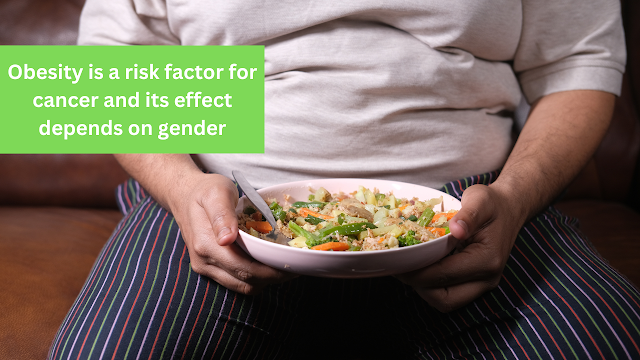Obesity has long been recognized as a significant health concern, linked to a range of chronic diseases. However, recent research has unveiled a troubling connection between obesity and cancer. While the relationship between excess weight and cancer is complex, studies have shown that the impact of obesity on cancer risk can vary between genders. In this article, we will explore the link between obesity and cancer and delve into the gender-specific effects it can have on individuals.
Obesity and Cancer: An Overview
Obesity is defined as having a body mass index (BMI) of 30 or higher, indicating an unhealthy amount of body fat. It is a multifactorial condition influenced by genetics, environment, and lifestyle choices, such as diet and physical activity. According to the World Health Organization (WHO), obesity rates have nearly tripled worldwide since 1975, making it a global epidemic.
The relationship between obesity and cancer is well-established, with numerous studies highlighting the increased risk for various types of cancer in obese individuals. The excess body weight can lead to chronic inflammation, hormonal imbalances, and insulin resistance, all of which contribute to the development and progression of cancer cells.
Gender-Specific Effects
Obesity and Female-Specific Cancers
Breast Cancer: Obesity is strongly associated with an increased risk of postmenopausal breast cancer in women. Adipose tissue, especially in the postmenopausal stage, produces estrogen, which can fuel the growth of hormone-sensitive breast cancer cells. Additionally, obesity may impact the effectiveness of hormone therapies used in the treatment of breast cancer.
Endometrial Cancer: Obesity significantly raises the risk of endometrial cancer, which affects the lining of the uterus. The excess fat tissue causes an imbalance in estrogen and progesterone levels, leading to abnormal cell growth in the endometrium.
Ovarian Cancer: While the link between obesity and ovarian cancer is less clear, studies have suggested a higher risk in obese women. The mechanisms behind this association are still being explored, but hormonal imbalances and chronic inflammation are believed to play a role.
Obesity and Male-Specific Cancers
Prostate Cancer: Obesity has been associated with an increased risk of aggressive prostate cancer in men. Higher levels of circulating insulin, inflammation, and altered hormone levels are potential factors contributing to this association.
Colorectal Cancer: Both men and women face an elevated risk of colorectal cancer due to obesity. However, studies suggest that obese men may have a higher risk compared to obese women. The excess weight, particularly around the abdominal area, may increase inflammation and insulin resistance, promoting the development of colorectal tumors.
Understanding the Gender Disparity
While the specific reasons for the gender-specific effects of obesity on cancer risk are not yet fully understood, researchers have identified several factors that could contribute to this disparity.
Hormonal Differences: Hormones play a crucial role in cancer development, and obesity can disrupt hormone regulation. Sex hormones like estrogen and progesterone are produced by fat tissue, and imbalances in these hormones can lead to cancer development. The impact of obesity on hormone levels may vary between genders, explaining the gender-specific effects observed.
Inflammatory Response: Obesity triggers a chronic inflammatory state within the body. Inflammation is a key component in the development and progression of cancer. Variations in inflammatory responses between men and women might influence the risk and progression of obesity-related cancers.
Distribution of Fat: Men and women tend to accumulate fat in different regions of the body. Men commonly have excess fat around the abdomen (visceral fat), while women typically store it in the hips and thighs (subcutaneous fat). Visceral fat is more metabolically active and has been associated with higher cancer risk, including colorectal and prostate cancer.
Conclusion
Obesity is a well-established risk factor for cancer, but its impact on cancer risk can differ between genders. Women face an increased risk of breast, endometrial, and possibly ovarian cancer, while men are more susceptible to prostate and colorectal cancer. Understanding these gender-specific effects is vital for developing targeted prevention strategies and effective treatments. Encouraging healthy lifestyle choices, including maintaining a healthy weight, regular physical activity, and a balanced diet, is crucial for reducing the burden of obesity-related cancers in both men and women.
Home Doctor: SECRET TO HOW Nursing At Home !!
👍👉 Get it here
📌Create easy your keto diet plan that suites you:
👌👉 Get it here
📬📌 Get your free physical keto cookbook delivered to your House mailbox :
👍👉 Get it here
